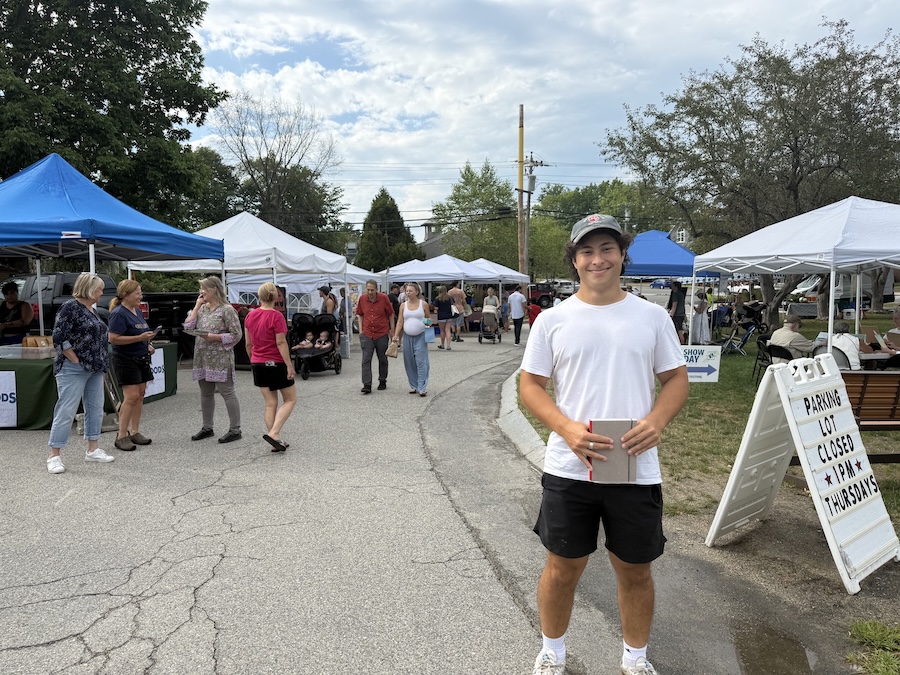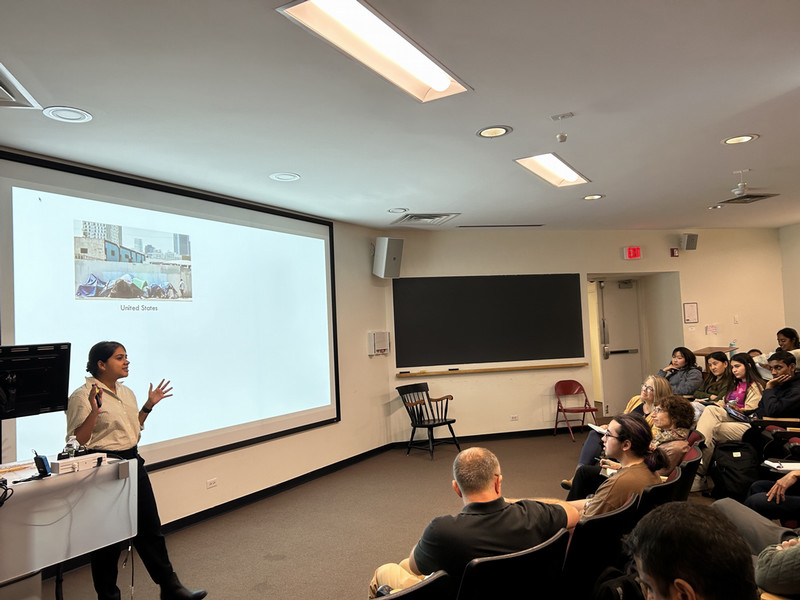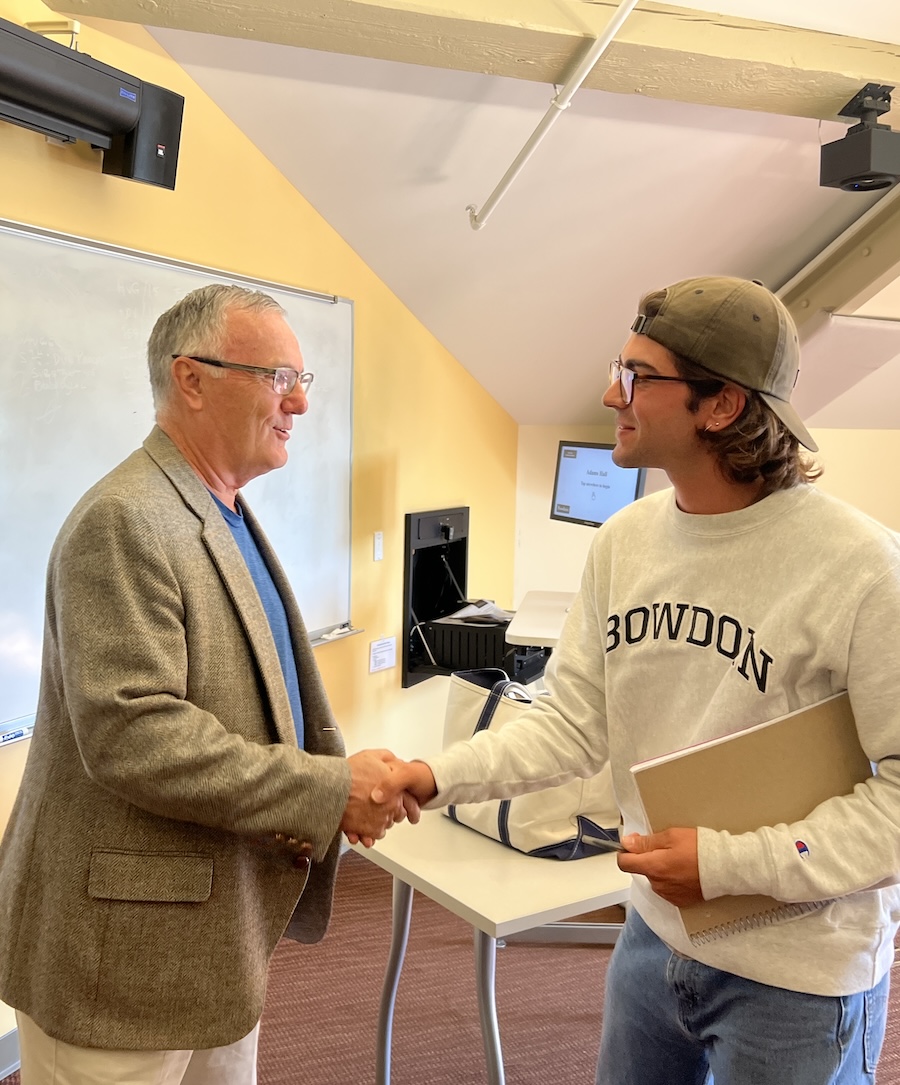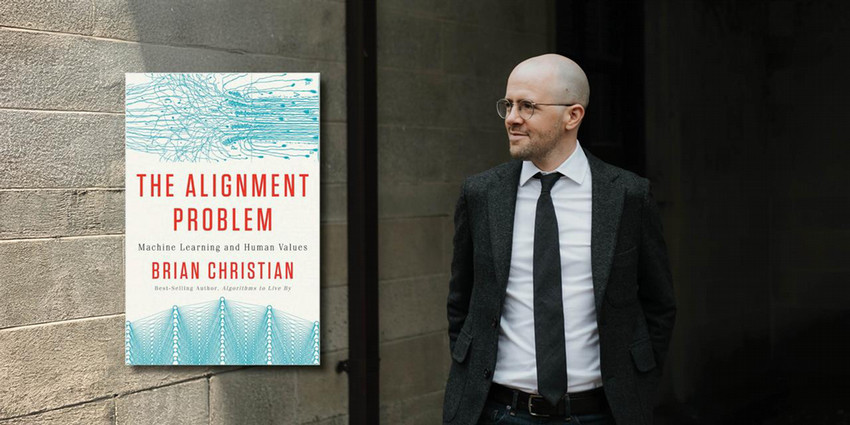Rudalevige Reacts to Latest Presidential Polling
By Tom Porter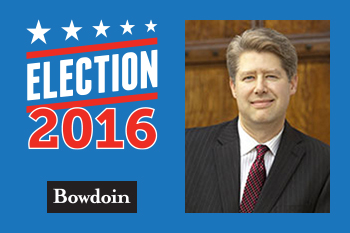
We’re still more than four months away from election day in the US, and the major parties’ presumptive candidates have yet to be made official, but opinion polls are showing Democrat Hillary Clinton enjoying a six-to-twelve point lead over rival Donald Trump. A CBS poll released this week gives Clinton a six-point lead, while a national poll conducted by Bloomberg puts the democrat 12 points ahead. But how much importance should we attach to opinion polls this far from the election?
College Writer Tom Porter spoke with Andrew Rudalevige, Bowdoin’s Thomas Brackett Reed Professor of Government.
Tom Porter: What’s your reaction to these latest polling numbers?
Andrew Rudalevige: I think we need to be cautious of any individual poll, especially national-level polls at this point, because we have still a large segment of the population that hasn’t tuned in. Certainly this has been a much more salient nomination process than many, but even so, polling data get much better as you get further through an election cycle.
TP: So the difference between a poll today and one in October could be huge?
AR: Yes; you can ask ‘President’ Mike Dukakis about that for example. He was doing pretty well in the polls as of June 1988.
TP: Given that, where is the best place to look for reliable polling data at this stage?
AR: I think if you go to a polling aggregation site, somewhere like Realclearpolitics.com, you will see how it can average different national polls, and I think that’s probably a more reliable way to get a sense of the race. So you might have one poll that says six points, one that says twelve, one that may show Trump up by a point or two, and I think as of Thursday, June 16, the average shows Clinton up by about six points in that aggregate collection. And as things get added, older polls drop out. So that’s a pretty good way to track the race because it tries to account for the problems that any individual poll can have in its measurement or the composition of the sample that it’s drawing on.
TP: Both candidates have their issues or controversies that they’re dealing with. With Clinton it’s the use of a private email server, and the security implications of that. With Trump, most recently it’s probably his comments about the federal judge in the Trump University case. It is unusual to have this level of negative energy surrounding both major candidates in a campaign?
AR: Yes is the short answer. These are probably the least liked candidates, certainly in the period that there are reliable polling data for. That said, it’s not that people don’t like both of them. You get a very split sample here. The people who very much like Hillary don’t like Trump, the people who like Trump very much don’t like Hillary. So it’s not the case, at least in the data I’ve seen, that there are many people out there who hate both of them. There are some. But on the whole this is a sign of polarization.
TP: What’s your take on what the two presumptive candidates have said in response to last weekend’s tragic shooting in Orlando, and how might their comments affect how voters see their stance on issues like terrorism and national security?
AR: We’ll have to see how that narrative settles over time, and it depends a little bit how you definite the Orlando killings: an act of foreign terrorism, or a domestic mass shooting. Depressingly enough, I think the likely response of the electorate is to settle into its previously existing patterns and to find the candidate they liked already saying things they like more. I would be surprised if it led to any long-term movements. Clearly some of Trump’s responses have perturbed some in the GOP establishment in terms of his renewed call for a ban on Muslims entering the US. Interestingly though, he’s in a strange position. He can be unpredictable in a way that the Clinton campaign might have to scramble to deal with. For example, on Thursday it was suggested he might be in favor of some gun control measures, which the Republican Party in Congress has opposed pretty fiercely. If you’re the Clinton campaign, Trump is a wild card. He’s not bound by prior party decisions, he doesn’t even seem bound by his own prior statements to be honest. So she needs to be quite flexible, or nimble in reacting to that.
TP: How important could the Libertarian party be in this election? What are the polls telling us regarding Gary Johnson and the potential he may have to draw support away from both sides?
AR: There’s been a lot of discussion about ballot access and the possibility of a third party candidacy, going back to when Michael Bloomberg was talking about it late last year. And so the libertarians have the advantage of being on the state ballots. Gary Johnson, and Bill Weld, the former Massachusetts governor who’s going to be his running mate, have a real opportunity to make a statement. They presumably would draw more heavily from Republican voters who would agree with their particular mix of policy ideals. That said, libertarians are libertarians right? They do take positions that would be anathema for social conservatives, so maybe they would pick up a few democrats as well. But I think this is a real opportunity for the libertarian party, especially if they could get away from the more doctrinaire parts of their platform and be a centrist party more than a die-hard libertarian one. Bill Weld for example, if he ran on his record as governor of Massachusetts in the 1990s, could actually be pretty appealing as a centrist candidate.
